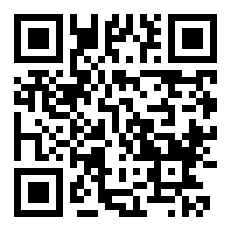Maiden Editorial
The publication of the maiden edition of the Nigerian Journal of Haematology marks a significant milestone in the history of the Nigerian Society for Haematology and Blood Transfusion (NSHBT) launched in Ibadan Nigeria in August 1972. What the Journal aims to achieve are clearly stated and are laudable. However, it requires the continuous commitment of members of the Society and hard work of the editorial team to ensure regular publication of scholarly material for the Journal to attain and maintain world class standards. Given the explosion in the number of 'open access', predatory and commercially oriented publications that now clog up the internet, this may seem more formidable than it appears initially. The situation may be further aggravated by the unhealthy 'On-shore/Off-shore' dichotomy policies adopted by many Nigerian University promotion boards and committees. In this system, a publication in a journal outside Nigeria (off-shore) is generally considered of better value than one published within Nigeria (on-shore)! The editorial team constituted by the Society to pioneer and manage the Journal clearly has the clout to quickly demonstrate that this policy should not be used with regard to NJH. Their work will be made considerably easier if manuscripts submitted by members of the Society are not those that have been touted (and rejected elsewhere); they should as much as possible make NJH their first choice.
This maiden issue of the Journal covers a wide range of subjects in haematology and blood transfusion that are genuinely relevant to the Nigerian population consisting of three papers on aspects of sickle cell disease, one each on an uncommon complication of acute lymphatic leukaemia, transfusion transmitted infections and HIV rapid diagnostic tests and risk of venous thrombo-embolism in surgical patients. This is a very rich mixture that should be sustained in future editions and the Editor deserves congratulations for the choices.
One phrase-resource limited/poor- which has recently become common is used in the title of one of the papers and in its various forms, it is usually in relation to the low and middle income countries such as ours. Whilst there may be genuine resource limitations as demonstrated in the paper presented, the problem is, in my opinion, more often one of poverty of resource management. A good example is the parlous state of the blood transfusion services in Nigeria which has the largest population of potential blood donors in Africa, perhaps the largest population of trained personnel to run a good service and certainly a lot of money in spite of the recession that can be ploughed into creating and maintaining an enviable blood service. In spite of persistent pleas from the Society to successive governments the blood services remain deplorable if not frankly dangerous. Making a change is not rocket science, it is a matter of resource allocation and management. Many more examples can be cited in all aspects of our lives!
Forty-five years after it was born, the NSHBT takes a small step for herself and a giant stride for Africa by becoming the first national society to own a scientific journal. A Google search for African Haematology journals on August 10, 2017 found only FOUR results; three owned wholly in part (in association with the University of California at Santa Cruz by publishing Houses and the fourth by the African wide Society of Laboratory Medicine. The oldest started publication in 2009. Certainly as the number of quality personnel in haematology service and research grows, more will be needed.
In closing, let us all commend the Society and the editorial personnel for this maiden edition and drink a toast to the success of our endeavour.
G J F Esan, PhD, MB, FRCP, FRCPath, FMCPath, FAS
Professor of Haematology
Afe Babalola University, Ado-Ekiti (ABUAD), Nigeria
Foundation Secretary and Past President
Nigerian Society for Haematology and Blood Transfusion
Editorial Adviser, NJH.
August 10, 2017.








